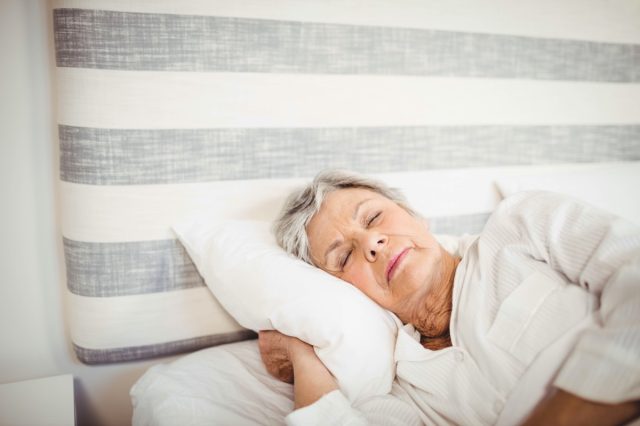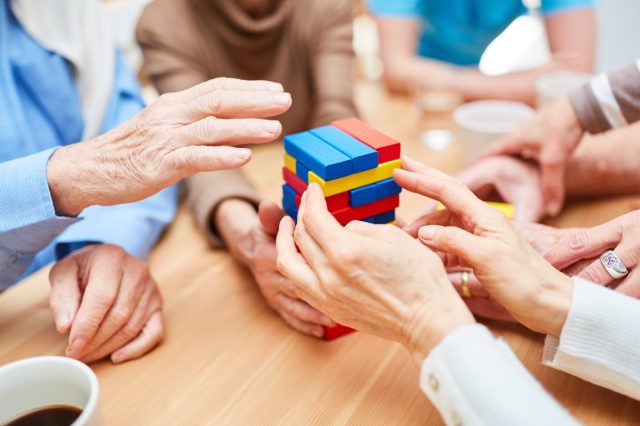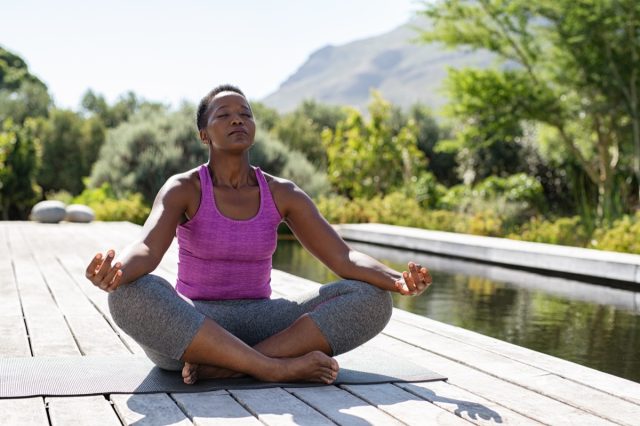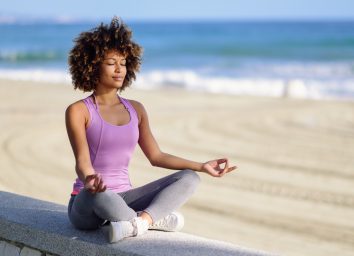The 5 Best Lifestyle Habits That Will Keep You Feeling Young, Science Says

Some say age is a mindset, but it's also a lifestyle. The decisions we make each and every day can determine and sway just how much the hands of time hold over us. By getting into the right lifestyle habits, you're going to look and feel younger, regardless of the decade you were born.
Consider this study, published in the International Journal of Aging Research. Scientists report most modern, older adults feel decades younger on the inside. Similarly, this survey of 2,000 adults, ages 65 and above, reports half of them feel younger than 50 years old.
So, what exactly is their secret? It may have something to do with more seniors than ever exercise on the regular. This poll indicates today's older adults (ages 50+) spend more time physically active than earlier generations. Moreover, research recently published in the Journal of Medical Internet Research even concludes adults over the age of 65 have been working out more than any other age group during the coronavirus pandemic.
Indeed, if you're on the lookout for new ways to rejuvenate your mind and body, regular exercise should be the first item on your list. More specifically, resistance training is an incredible ally in the fight against aging. According to Emily Servante, senior CPT at Ultimate Performance, a regular regimen of weight lifting and resistance exercises is key to graceful aging for both men and women.
"Can weight training 'make you younger?' The plain answer is no, but it can make you feel a whole lot younger, more mobile, and more energetic. Introducing regular resistance training into your routine can massively improve hormonal and inflammatory issues in older people, which is key in preserving and increasing muscle mass, slowing down sarcopenia (muscle wasting), and increasing fat loss," Servante explains.
You may be wondering what other lifestyle changes you can adopt to fend off the effects of aging and feel younger. If so, you're in luck! Read on to learn about the best lifestyle habits that will keep you feeling young, according to science. And for more, check out If You Think This About Yourself, You'll Live Longer, Says New Study
Prioritize sleep

Sleeping well is essential, but that doesn't make it any easier to get some shuteye on restless nights. Between work, play, and a 24/7 news cycle, it's very easy in these modern times to push sleep aside as an afterthought. If you want to look and feel younger, though, proper sleep is non-negotiable.
"Good quality rest allows your body to rest and repair itself — including your skin, for those who want to look younger to match their energy — and is necessary for the health and functioning of every single bodily process. Waking up with youthful energy often rests on how deeply you commit to a healthy sleep routine," explains CSSC Stephen Light of Nolah Mattress.
It's also important to mention that it's possible to get too much sleep. Recent research published in BRAIN reports that habitually sleeping for less than 4.5 hours or over 6.5 hours on a nightly basis is linked with greater cognitive decline among older individuals. So just remember to set an alarm!
As far as how to more easily attain a satisfying night's rest, Light suggests sculpting a personalized bedtime routine to follow night in and night out. "One of the most important things is building a soothing sleep ritual, which could look like playing light music, having herbal tea, or taking a bath — and try to stick to a consistent bedtime," he recommends.
Related: Avoid These Sleep Positions for Better Z's, Say Experts
Keep a positive outlook on growing older

The power of the mind shouldn't be underestimated, and fascinating recent research published in The Journals of Gerontology: Series B tells us that simply being pessimistic about growing old can lead to a faster deterioration in both overall health and wellbeing. In other words, if you're constantly ruminating about how awful growing old is going to be, [you] may very well prove yourself right. "It's kind of a self-fulfilling prophecy," says lead study author Dakota Witzel, a doctoral candidate at Oregon State University's College of Public Health and Human Sciences.
Over 100 Oregon locals between ages 52 and 88 took part in this study. It's worth noting that subjects with worse self-perceptions of aging were much more vulnerable to stressors, reporting more physical health symptoms on particularly stressful days.
"These things are truly important for our health and well-being, not only long-term, but in our day-to-day life," Witzel adds. "The likelihood of reporting these physical health symptoms is significantly decreased, on average, when you have better self-perceptions of aging."
Take more vacations

This survey finds the key to a long, happy, youthful life is finding the time for some childlike, carefree activities, no matter your age. What's more carefree than taking a vacation? When we travel someplace special, we broaden our horizons, let go of long-lingering stress, and make lifelong memories and maybe even new friendships.
"I believe that travel is one of the things that keeps us young. Exploring the world provides us with a sense of wonder and makes us feel young. It helps keep our sense of curiosity young," states Lee Jason Friend, Holistic Services Coordinator at The Ohana Addiction Treatment Center.
Furthermore, this study released in Tourism Analysis finds people who travel more often are happier in general, and this project released in The Journal of Nutrition, Health & Aging concludes travelers tend to live longer in general. Why? Vacations relieve stress, and it's well-documented that excessive stress levels will accelerate the aging process.
"Don't think having an otherwise healthy lifestyle will compensate for working too hard and not taking holidays," says Professor Timo Strandberg of the University of Helsinki, Finland. "Vacations can be a good way to relieve stress."
Related: Meditating Can Impact Your Immune System In This Incredible Way, New Study Says
Play games that challenge your mind

We touched on the importance of exercise earlier, but it's equally as essential to make sure you're working out your brain, too.
"Your brain ages just like the rest of your body as part of the natural aging process. It shrinks, slows down, and becomes less adaptable to change. Therefore, to stay healthy, it's critical to stretch your brain as well your heart, legs, and other muscles," explains Karalyn Cass, a Diabetes Prevention Program (DPP) coach and program coordinator with First Mile Care.
Flexing your neurological muscles doesn't have to be a chore. This study published in the scientific journal Neurology discovered that keeping your brain active — for example, playing more mentally stimulating activities like board games, card games, and puzzles — goes a long way toward preserving the mind's gray matter and preventing dementia.
Another research initiative released in The Journals of Gerontology: Series B came to similar conclusions. Study authors report that people who routinely play non-digital games throughout their lives show stronger memory and thinking skills by the time they reach their 70s.
Take control of your life

Adult life can be quite hectic. In between navigating the day's daily chores and obligations, it's easy to start feeling like your hand is barely on the steering wheel of your own life. Interestingly, this study published in The Journals of Gerontology: Series B reports that when older adults feel totally in control of their lives, they also feel younger.
The next afternoon, you find yourself running around and getting things done for your family or job, take some time and do something just for you. Even if it's as simple as taking 15 minutes to read some of your book, stretch it out with yoga, or go for a relaxing walk around your favorite local neighborhood.
Related: Sign up for our newsletter for the latest Mind + Body news!








